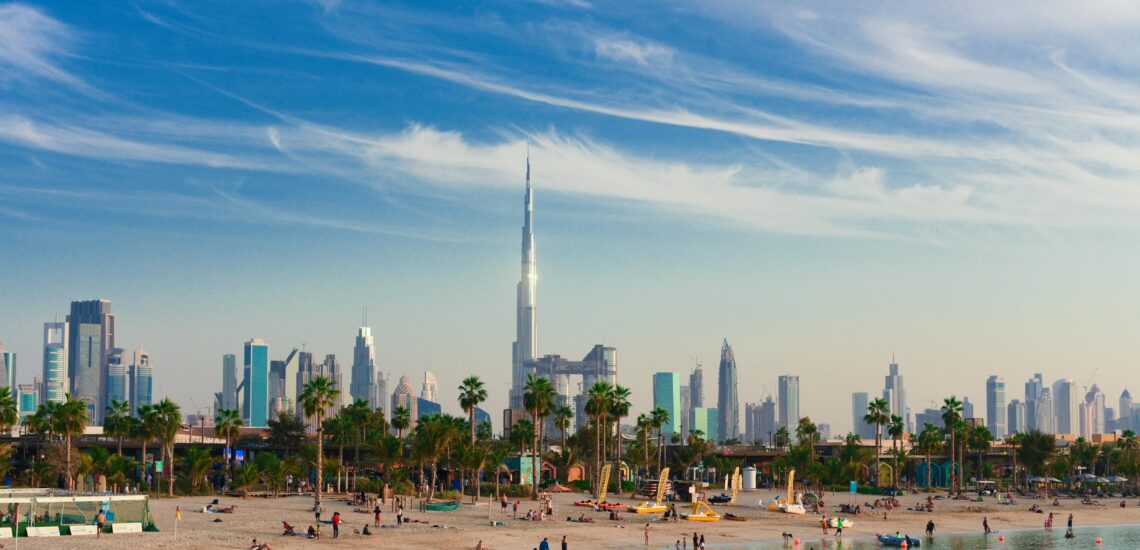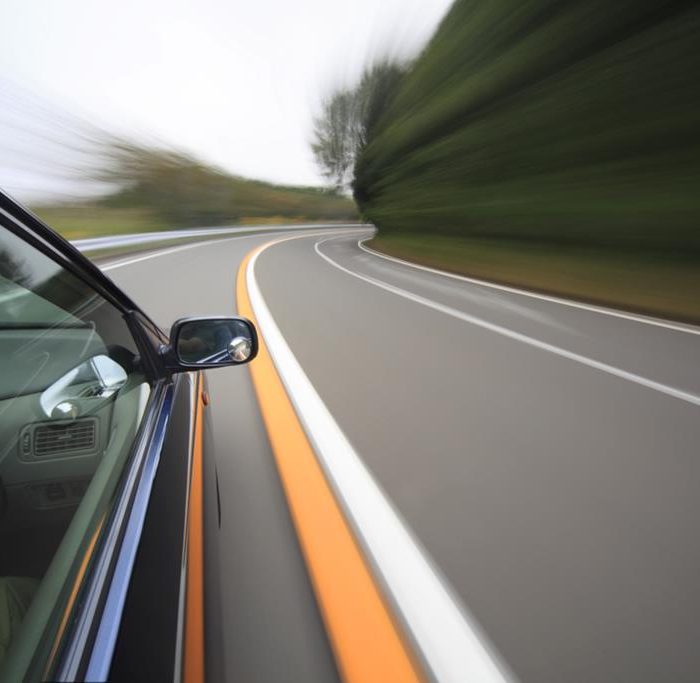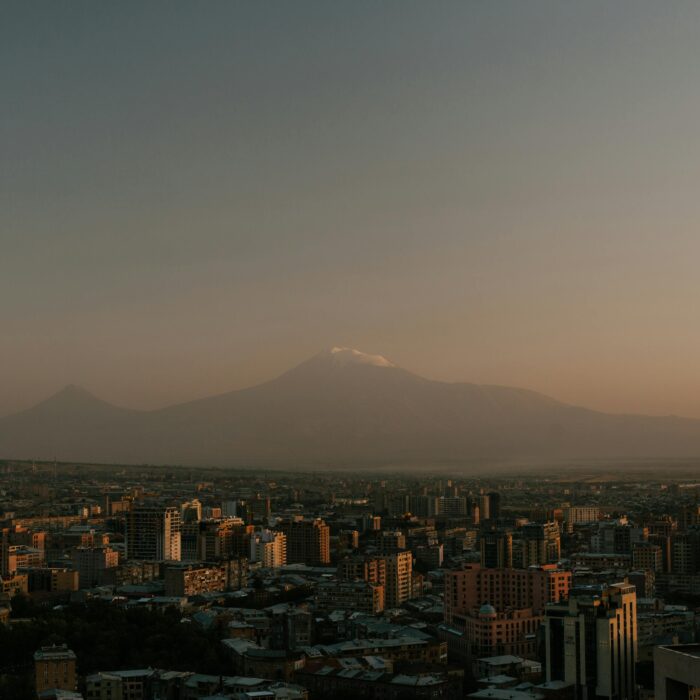Quick facts about UAE:
- Population: Approximately 10 million people.
- Capital: Abu Dhabi.
- Largest City: Dubai.
- Official Language: Arabic.
- Currency: United Arab Emirates Dirham (AED).
- Government: Federal absolute monarchy composed of seven emirates, each with its own ruler.
- Major Religion: Islam, predominantly Sunni.
- Geography: Located in the Middle East on the Arabian Peninsula, bordered by Saudi Arabia to the south and west, Oman to the east and southeast, and the Persian Gulf to the north.
Fact 1: The world’s tallest building is in the Arab Emirates
The world’s tallest building, the Burj Khalifa, is located in the United Arab Emirates, specifically in the city of Dubai. Standing at an impressive 828 meters (2,717 feet), the Burj Khalifa has held the title of the world’s tallest structure since its completion in 2010.
This architectural marvel was designed to be a centerpiece of Downtown Dubai, symbolizing the city’s rapid development and ambition. The tower features a mix of residential, commercial, and hotel spaces, along with observation decks offering panoramic views of Dubai and beyond.
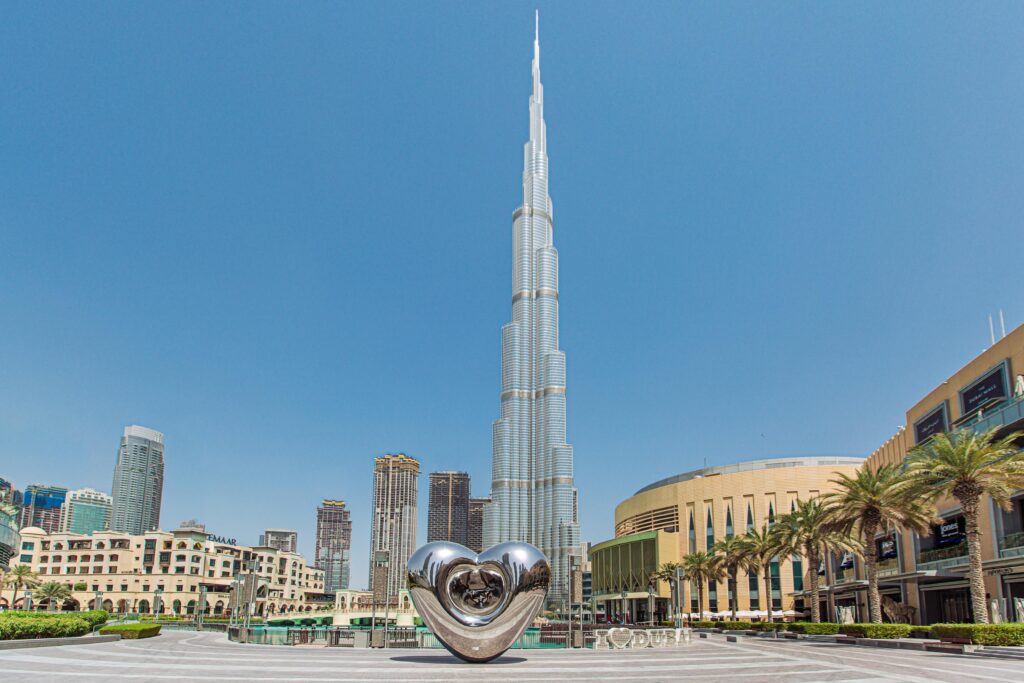
Fact 2: The Arab Emirates is a developed country that got rich on oil
The United Arab Emirates (UAE) is a developed country that initially built its wealth on the discovery of vast oil reserves in the mid-20th century. The revenue generated from oil exports rapidly transformed the UAE from a desert region of small, pearl-diving communities into one of the wealthiest nations in the world.
However, while oil was the foundation of the UAE’s prosperity, the country has since diversified its economy significantly. The government strategically invested oil profits into developing other sectors, such as tourism, real estate, finance, and technology. Cities like Dubai and Abu Dhabi have become global hubs for business, tourism, and luxury, attracting investment and visitors from around the world.
Fact 3: The UAE is a country where there are no permanent rivers and lakes
The United Arab Emirates is a country characterized by its arid desert landscape, with no permanent rivers or lakes. The vast majority of the UAE’s terrain is made up of desert, particularly the Rub’ al Khali, or Empty Quarter, which is one of the largest sand deserts in the world.
The lack of natural freshwater sources has historically posed challenges for the country. To address this, the UAE has heavily invested in desalination plants to provide fresh water from the sea, which now supplies most of the nation’s water needs. The country also implements advanced water management strategies, including the use of treated wastewater for irrigation and the development of artificial lakes and reservoirs.
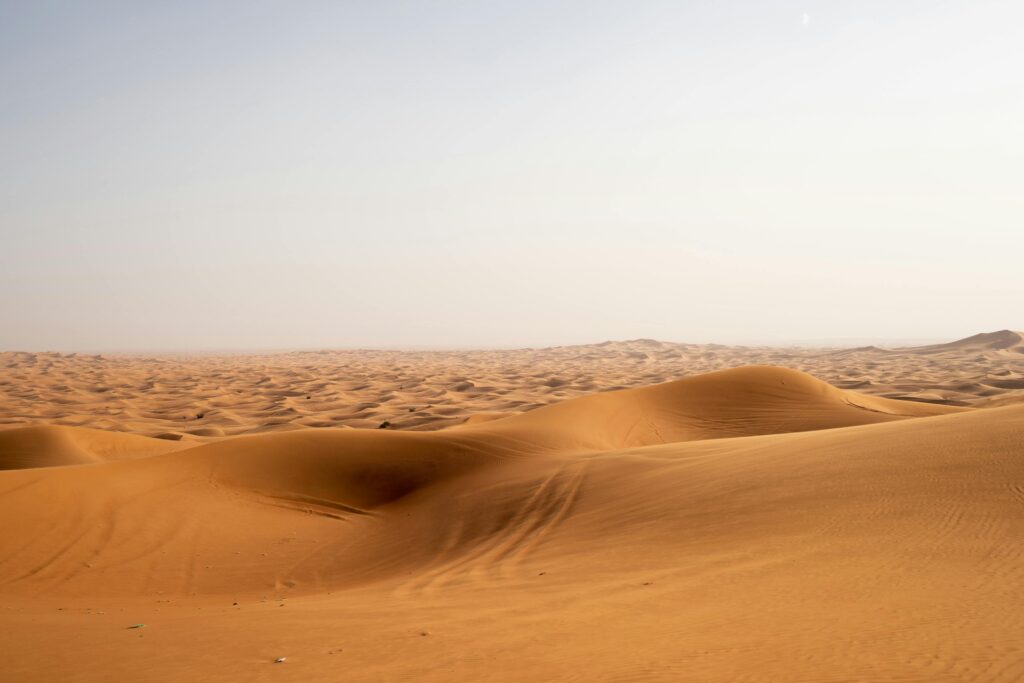
Fact 4: Most of the population is stateless foreigners of over 200 nationalities
In the United Arab Emirates (UAE), a significant portion of the population consists of foreign nationals, making up about 88% of the total population. These expatriates come from over 200 different countries, drawn by the UAE’s booming economy and job opportunities, particularly in sectors like construction, finance, hospitality, and technology.
Most of these expatriates do not hold UAE citizenship, which is difficult to obtain, and are considered stateless in terms of nationality within the country. They live and work in the UAE under renewable residence permits linked to their employment. The native Emirati population, by contrast, makes up only about 11-12% of the total population, meaning the country has one of the highest proportions of expatriates in the world.
Fact 5: Police in the UAE have a fleet of expensive cars
The police force in the United Arab Emirates, particularly in Dubai, is renowned for its fleet of luxury and high-performance cars. This fleet includes some of the world’s most expensive and exotic vehicles, such as the Bugatti Veyron, Lamborghini Aventador, Ferrari FF, and Aston Martin One-77. These cars are not just for show; they are fully operational police vehicles used to patrol the city’s streets, particularly in areas frequented by tourists and in high-profile locations.
The inclusion of these luxury cars in the police fleet serves multiple purposes. It enhances the city’s image as a global hub of luxury and innovation, attracts media attention, and allows the police to engage with the public and tourists in a unique way. Additionally, these high-speed vehicles can be practical for pursuits and rapid response situations in a city known for its fast-paced lifestyle.
Note: If you plan to visit the country and travel by car, check if you need an International Driving Permit in UAE to drive.
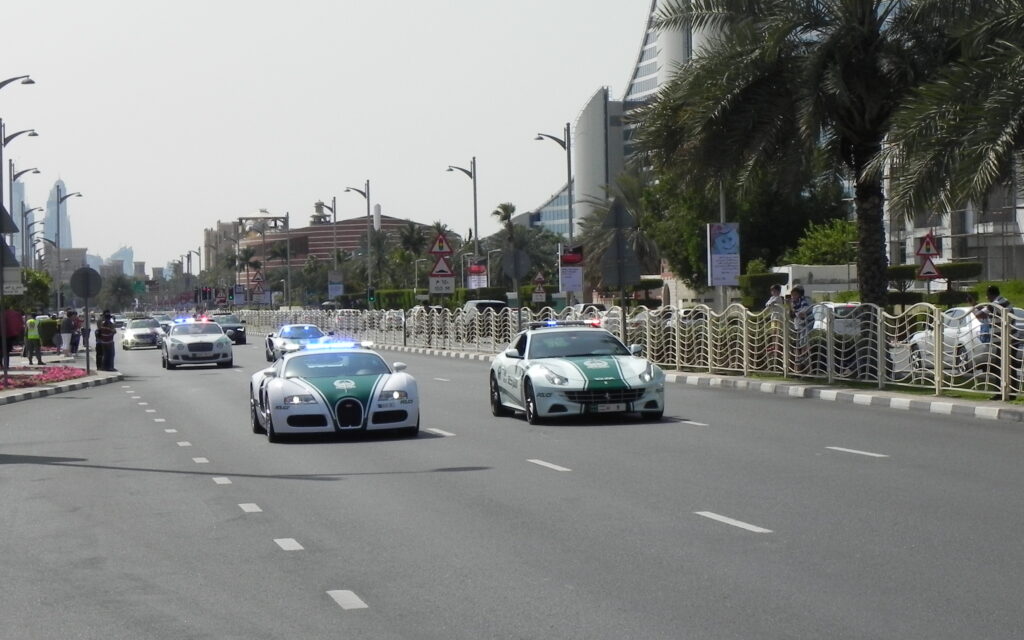
Fact 6: The UAE has developed tourism
The United Arab Emirates, especially Dubai, is renowned for its innovative and extravagant tourism attractions. Dubai Mall, one of the world’s largest shopping centers, features an array of high-end shops, restaurants, and entertainment options, including the Dubai Aquarium. This oceanarium is home to thousands of aquatic species and includes a massive 10-million-liter tank visible from the mall’s main atrium.
In addition to shopping and marine life, Dubai offers unique experiences such as the Indoor Ski Resort, Ski Dubai, located within the Mall of the Emirates. This facility provides a snow-covered environment where visitors can enjoy skiing, snowboarding, and even meet penguins, all within a desert city.
The UAE’s architectural landmarks also draw significant tourist interest. The Burj Khalifa, the world’s tallest building, offers breathtaking views from its observation decks. The Burj Al Arab, a luxury hotel designed to resemble a sail, stands as one of the most iconic symbols of opulence.
Fact 7: The UAE is famous for its reclaimed land and islands
The United Arab Emirates is well-known for its ambitious land reclamation projects, which have dramatically altered its coastline and contributed to its iconic skyline. These projects have created a number of high-profile man-made islands and developments.
One of the most famous examples is the Palm Jumeirah in Dubai, an artificial archipelago designed in the shape of a palm tree. This island features luxury hotels, upscale residences, and entertainment venues. It is one of the most recognized symbols of Dubai’s innovation and opulence.
Another significant project is the Palm Jebel Ali, also a palm-shaped island, although less developed than Palm Jumeirah. The World Islands, an archipelago consisting of 300 small islands designed to resemble a world map, represents another ambitious reclamation effort, intended to offer exclusive resorts and private homes.
The UAE has also undertaken the Yas Island development in Abu Dhabi, which is home to the Yas Marina Circuit, host of the Formula 1 Abu Dhabi Grand Prix, along with numerous entertainment and leisure facilities.
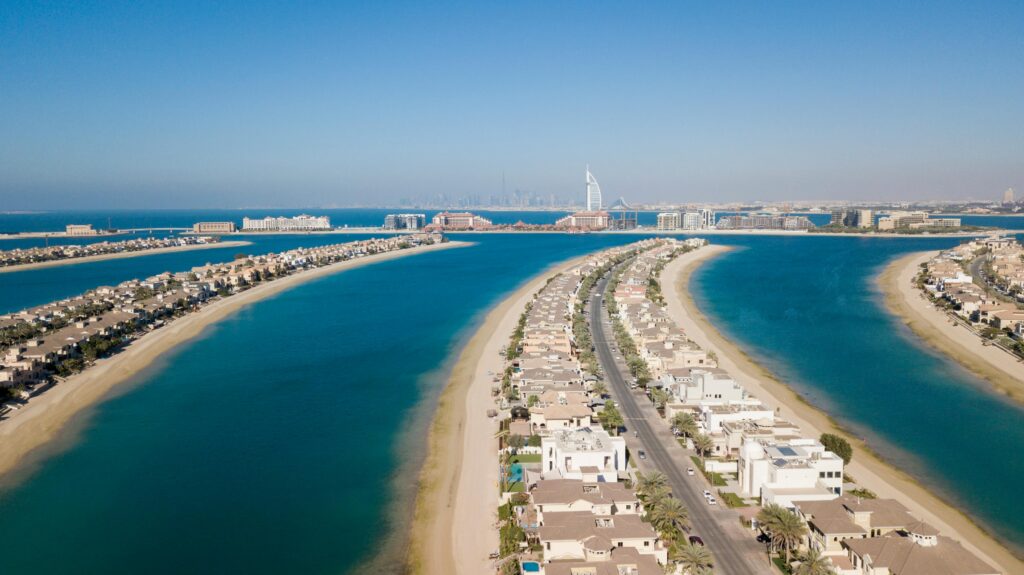
Fact 8: Women have more rights in the UAE than in other Muslim countries
In the United Arab Emirates, women enjoy a relatively progressive status compared to many other countries in the Muslim world. The UAE has made significant strides in advancing women’s rights, particularly in education and the workforce.
Women in the UAE have access to a wide range of rights and opportunities, including the right to work, drive, and participate in public life. The country has implemented various policies aimed at improving gender equality, such as mandatory women’s representation in government roles and corporate boards. For instance, women hold significant positions in both the public and private sectors, and the UAE government has appointed women to high-profile roles, including in the cabinet.
Education is a particular success story. Women make up the majority of university graduates in the UAE. This trend reflects the country’s emphasis on higher education and its efforts to empower women through academic and professional development.
Fact 9: The UAE has one of the highest ratios of mosques to population
The United Arab Emirates has one of the highest ratios of mosques to population in the world. This high density is a reflection of the country’s strong Islamic heritage and the central role that religion plays in daily life.
In cities like Dubai and Abu Dhabi, mosques are ubiquitous, serving both the local Muslim population and the many expatriates living in the country. The UAE’s commitment to providing accessible places for worship is evident in the large number of mosques scattered throughout its urban and rural areas.
Prominent examples include the Sheikh Zayed Grand Mosque in Abu Dhabi, one of the largest mosques in the world, renowned for its stunning architecture and ability to accommodate thousands of worshippers. Additionally, the Jumeirah Mosque in Dubai is notable for its welcoming approach to visitors and its role in promoting cultural understanding.
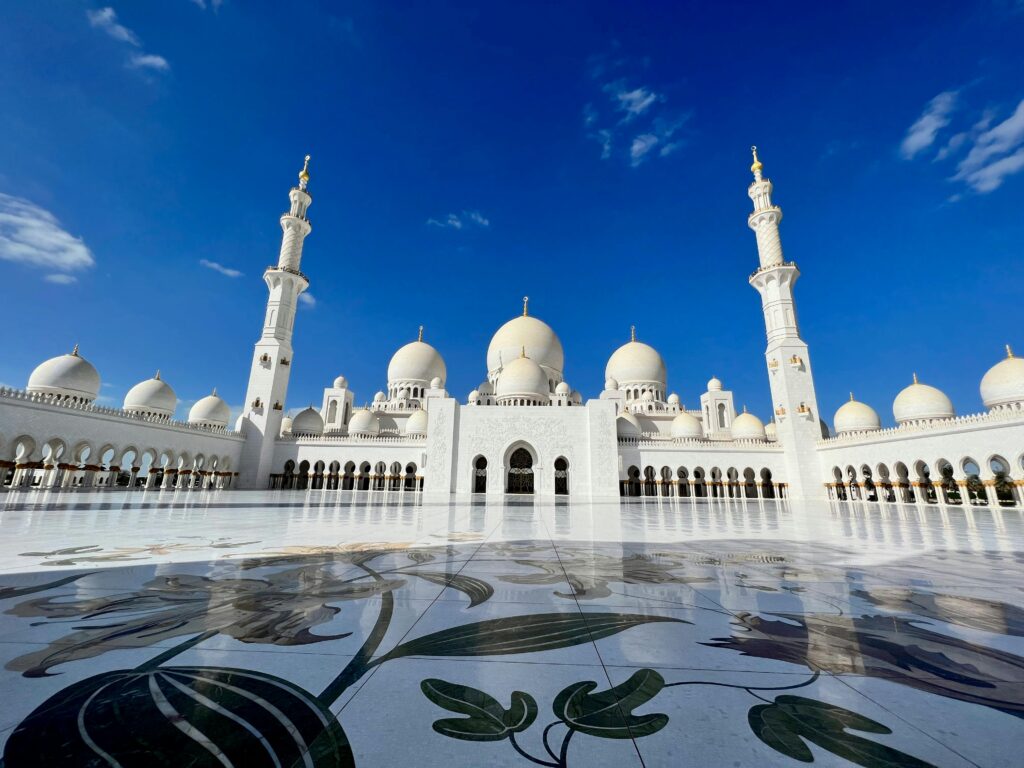
Fact 10: UAE has the lowest female fertility rate in the Middle East
As of recent data, the fertility rate in the UAE is approximately 1.9 children per woman, which is below the replacement level of 2.1 needed to maintain a stable population size.
Several factors contribute to this low fertility rate. The high cost of living, particularly in major cities like Dubai and Abu Dhabi, places financial pressure on families, which can lead to a preference for smaller family sizes. Additionally, the high level of female education and participation in the workforce means that many women prioritize their careers and personal development, which can delay or reduce the number of children they have.
The demographic composition of the UAE, with a significant expatriate population, also influences fertility patterns.
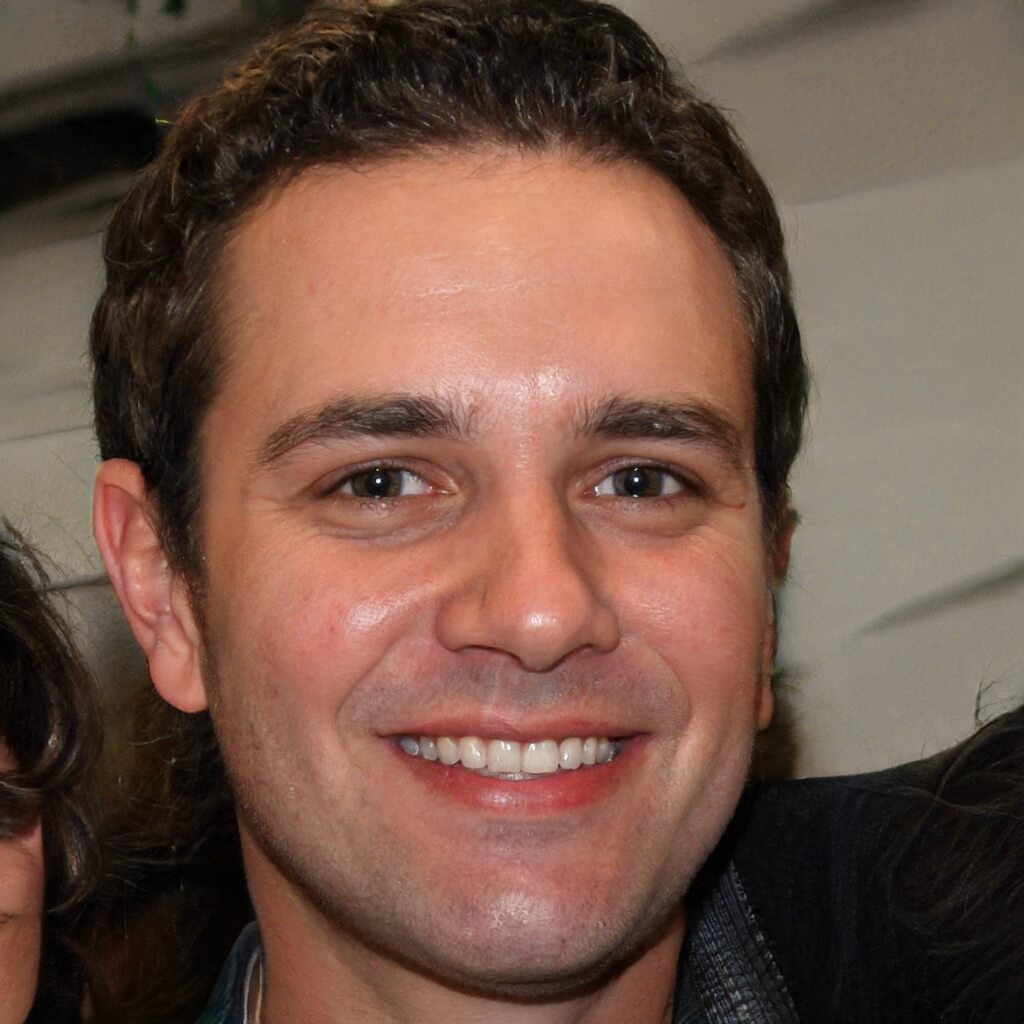
Published September 01, 2024 • 8m to read

